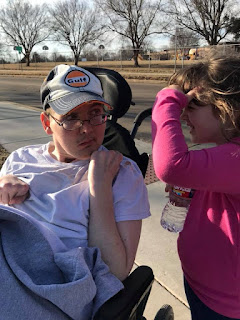A Caregiver's Guide to Home Modifications for Alzheimer's Patients
As a caregiver, you want to do everything possible to help a client or loved one with Alzheimer's. This includes modifying the patient's home with her medical needs in mind. In this post, we'll discuss the principles that should guide you when planning these alterations. Use this information when discussing the project with your remodeling contractor. Never attempt these modifications yourself unless you're sure of your skills and knowledge.
Three Ways Alzheimer's Disease Affects the Brain
Alzheimer's interferes with the mental processes involved with carrying out everyday tasks, according to the National Institute on Aging. Over time, these changes can produce the following symptoms in the sufferer:
- Forgetting how to perform basic tasks such as balancing a checkbook, driving a car, and taking care of personal hygiene needs.
- Feeling confused in formerly familiar environments, including the family home. Sufferers may forget which door leads to a particular room or where they keep common items such as a wallet or car keys.
- Becoming easily agitated, even towards people who have done nothing wrong. This is a symptom of a much deeper problem affecting the patient's sense of judgment and emotional balance.
Relieving these symptoms requires modifying the home in line with the following principles:
● Simplicity. The caregiver should minimize the steps the patient needs to complete an action. For example, in the past, the sufferer may have had to go upstairs and turn two corners to reach her bedroom. Going forward, it may be best to relocate the patient's sleeping quarters to the primary floor and to use a room directly across from the main living area.
● Usability. Visual cues such as signs and directional arrows can help compensate for failing memory. One suggestion is to use signs that feature graphics rather than text. If written messages are employed, then choose short words and plain language.
● Safety. Removing knobs from the stove, locking cabinets that contain household cleaners, and monitoring access to exits are all prudent measures.
Now let's look at modifications for specific rooms.
Bathrooms
Remodeling a bathroom can be a reasonable investment when compared to the benefits the changes may provide for the patient. Save yourself time and stress by hiring a professional to complete the job. Check online to find professionals in your area. Here are some of the steps typically taken for Alzheimer's sufferers:
● Installing slip-resistant floor tiling and grab bars.
● Changing the existing bathtub or shower stall to a walk-in design.
● Modifying the toilet to accommodate a wheelchair-bound person.
The Kitchen
● Lowering the height of the sink and surrounding area for ease of access from a wheelchair.
● Replacing existing cabinet knobs with more ergonomic options.
● Installing a lock on the refrigerator to prevent unhealthy binge eating.
Bedrooms
Possible modifications include:
● Adding an adjacent restroom.
● Installing added lighting fixtures to compensate for reduced visual acuity.
Steps to Take as the Condition Progresses:
Other changes that may become advisable over time include:
● Installing video cameras at key points throughout the home.
● Adding handrails to hallways.
● Removing area rugs and other potential trip hazards.
● Installing a hospital-style bed when the patient is no longer ambulatory.
Alzheimer's is a complicated disease. The measures needed to accommodate its symptoms are equally complex. The information in this post is a good starting point for addressing these issues. We recommend consulting with the patient's healthcare provider or caseworker before completing any of the modifications mentioned herein. We wish you and your client or loved one all the best as you face the future together.










